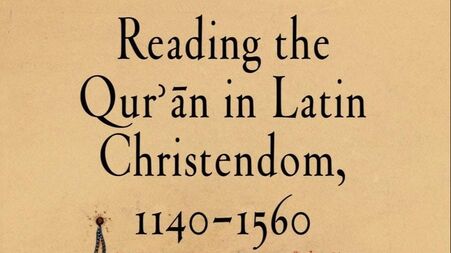Book Review: Thomas E. Burman: Reading the Qurʾan in Latin Christendom, 1140-1560Forty-seven years after the publication of Norman Daniel's groundbreaking work on the making of Western attitudes toward Islam, Thomas E. Burman examines a small body of primary sources in order to specifically explore the relationship learned men of Western Christendom had with the Qur'an as they attempted to translate it into Latin. In doing so, Burman's main concern seems to be a revision of the main thrust of Daniel's "magnificent treatment of how Latin Christians came to conceive of Islam". As opposed to Daniel's well-documented conclusions, Burman claims that "Latin-Christian interactions with the Qur'an were a good deal more complex than we have long thought". Reading the Qur'an in Latin Christendom argues, as one of its main theses, that Christian Qur'an reading in the period under study was characterized "as much by what I will be calling philology-the laborious study of the meaning of Arabic words and grammar, of the historic Muslim understanding of the Qur'an, and of its textual problems in both Arabic and Latin translation--as it is by polemic; that these two modes of reading often existed side by side in the mind of the same reader; and that while philology was typically undertaken in the service of polemic (one has to understand a text in order to attach it), it also existed here and there quite independently". In addition, Burman argues that there was a second kind of complexity that characterized Latin Christian Qur'an reading--a complexity of attitudes toward the Qur'an and the ways of experiencing it as a text and object.
|
|
© Center for Islamic Sciences. All Rights Reserved.
Designed and Developed by Crescent Marketing Solutions |


